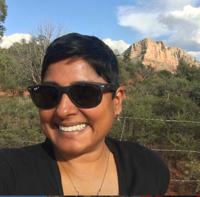Start Here!
Articles and Books
TO Guide Articles
Articles
These databases have mostly scholarly articles:
- Academic Search Premier [make sure to select the box that says "Scholarly (Peer Reviewed) Journals"]
- JSTOR
- Sociological Abstracts
- Communication and Mass Media
- ScienceDirect
- CINAHL
- Wiley Online Library
The following databases have mostly popular press (mass media) articles:
See an article you want in one of these databases?
- Click on the "Get it! @CSUSM" link
- Look for "Full Text" in PDF or HTML format
- If we don't own the full-text, simply fill out an Interlibrary Loan request. It's free for you to use and takes about 1 - 10 business days to arrive.
- Any time you need help, reach out to the librarian listed on the right-hand side of this guide. You can also email libref@csusm.edu or try live chat during library hours.
Note: If you use Google Scholar, don't pay for articles from publisher websites! Find the full text for free through our library.
TO Guide Search Strategies
Search Strategies
Search strategies to get better results when searching a database:
- Identify key concepts and synonyms
- Use "quotes" around phrases
- Use AND between different concepts
- Use OR between similar concepts
- Use an asterisk* to find word variations
Bonus: Use NOT to exclude concepts
Build your own search strategy (University of Arizona)
TO Guide Books
Books
Search the Library Catalog for books at CSUSM. You might need this map to find your book-- or just ask at the Research Help Desk.
Our library is organized using the Library of Congress Classification System
Search the The Circuit for books from local libraries, including UCSD and SDSU. Delivered to our Check Out Desk in 1-3 days!
Citing Sources
LBST classes
Sitewide guides menu
Lalitha Nataraj

760-750-4070
KEL 3427
